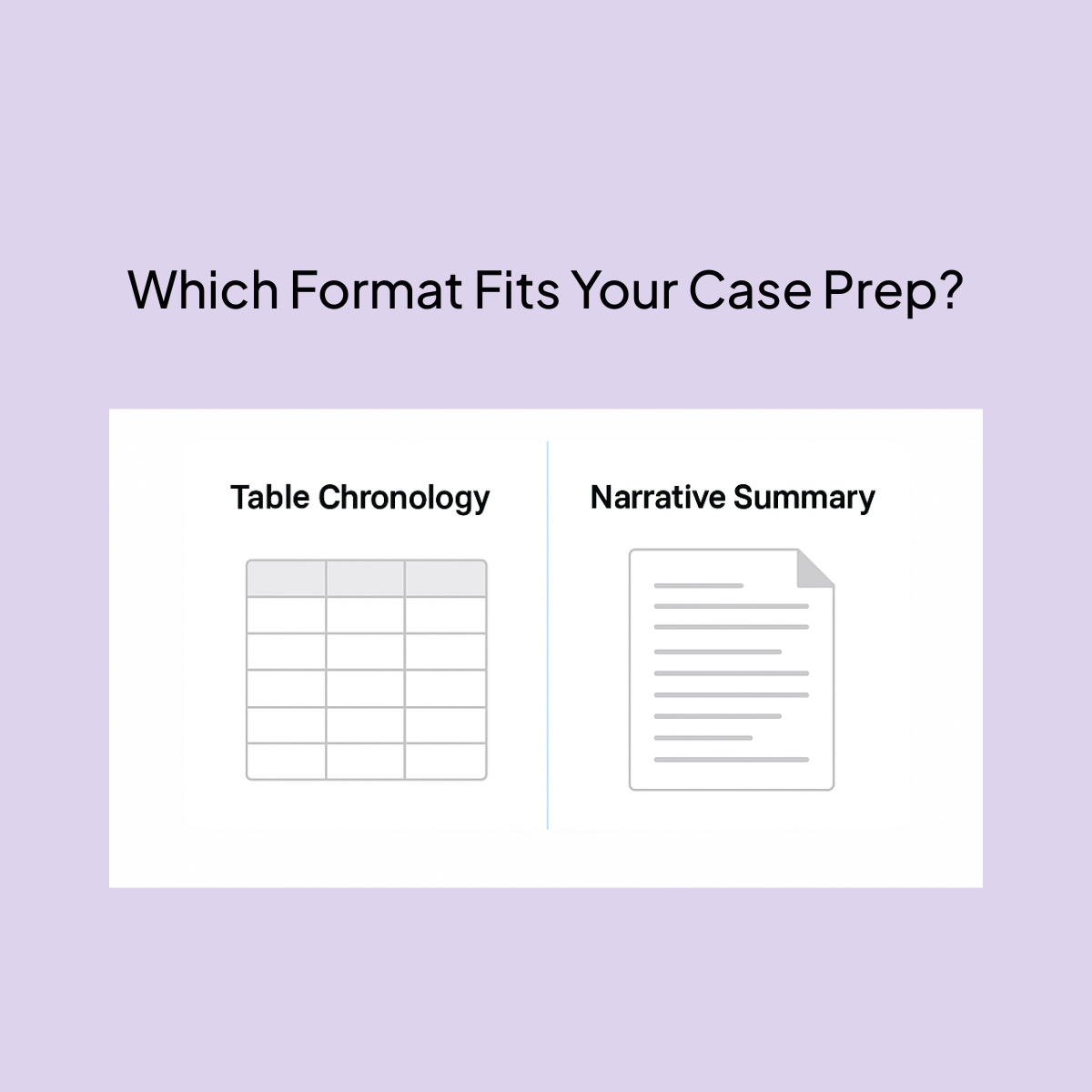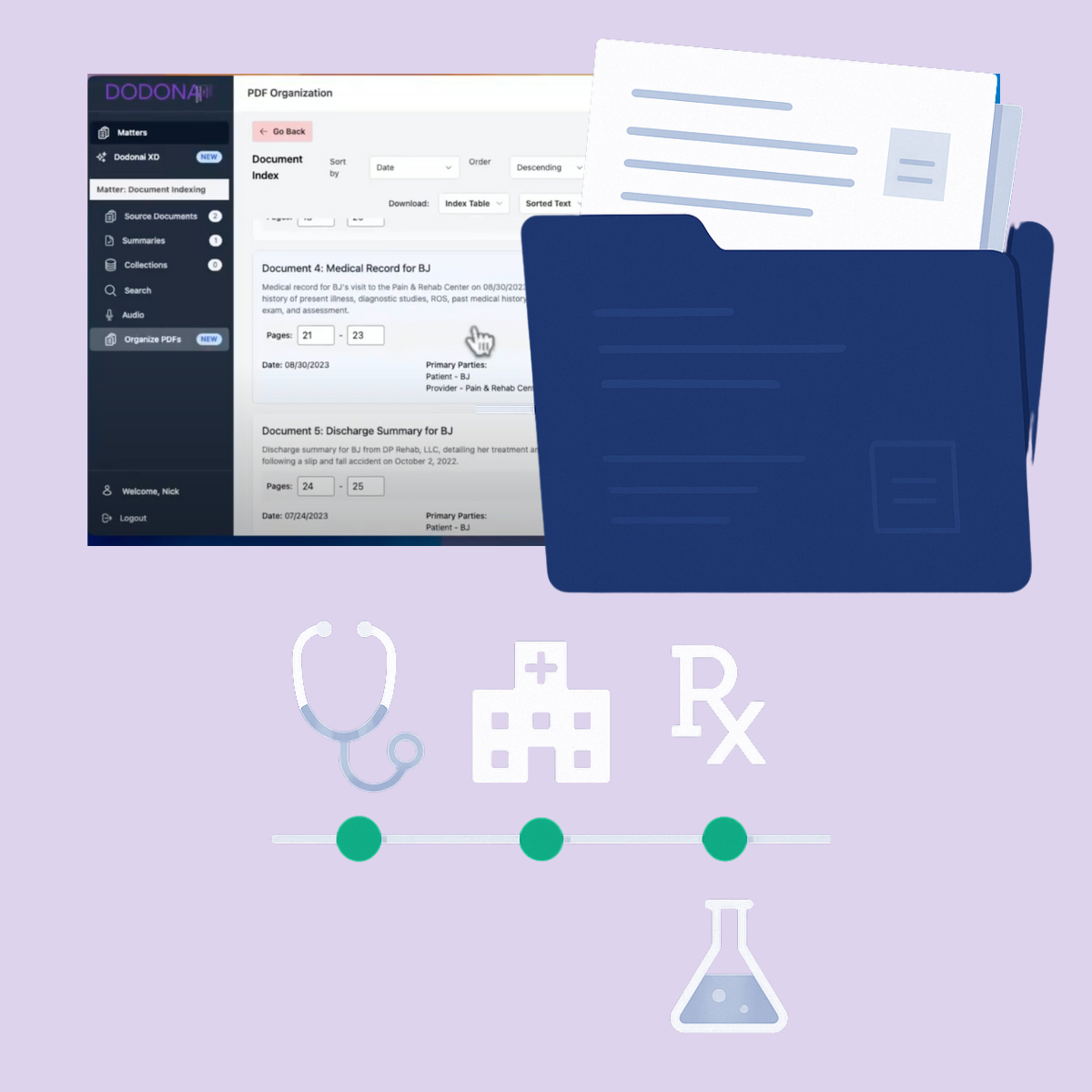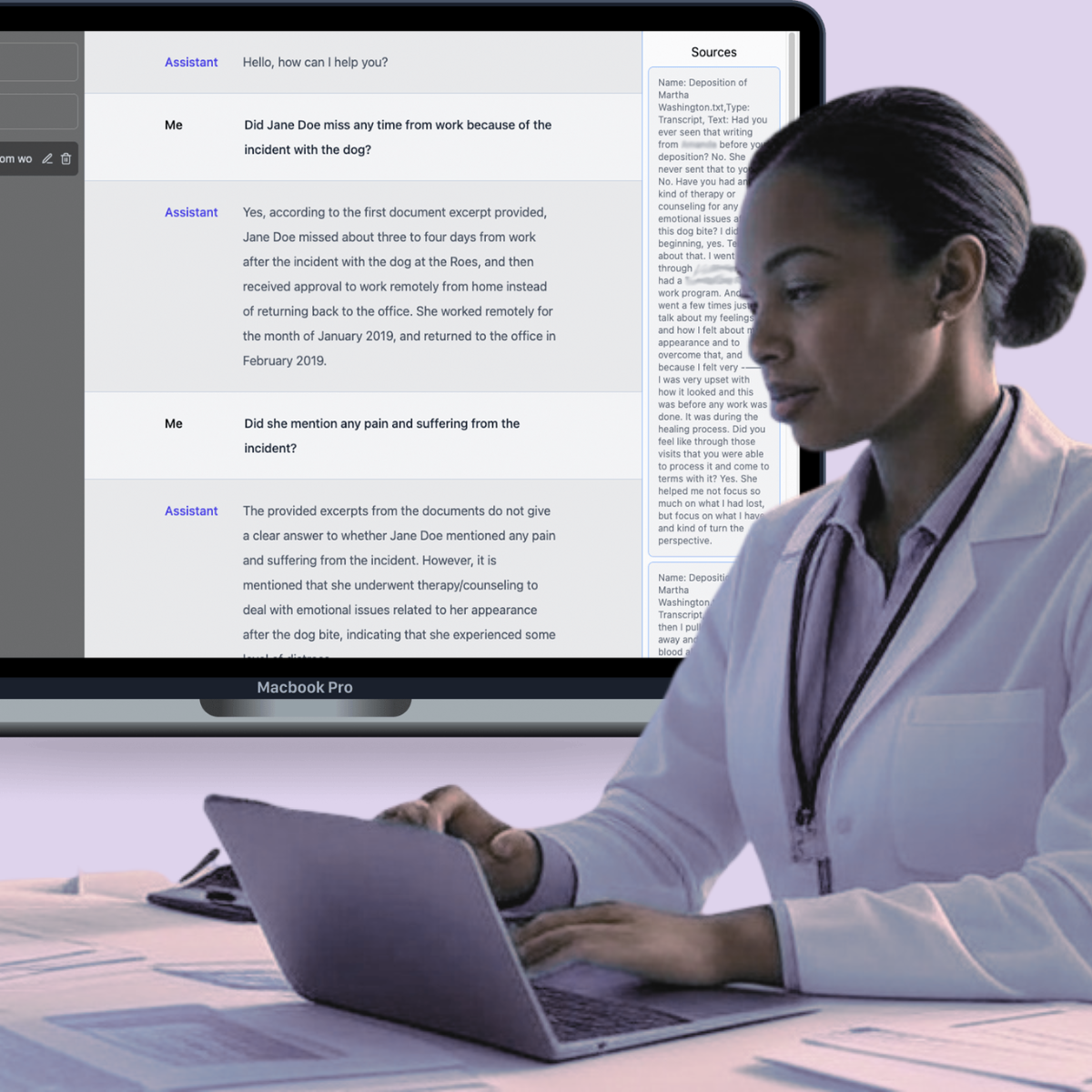
HIPAA Compliance Checklist for Medical Chronologies: What Busy Teams Need to Know

When litigation or independent medical exams depend on medical records, accuracy isn’t the only concern. Protecting patient information is just as critical. That’s where HIPAA comes in - though not always in the way teams assume.
A medical chronology is a structured timeline of a patient’s care - diagnoses, treatments, and key events - used by attorneys, IME doctors, and litigation support teams to evaluate causation and damages. Because medical chronologies rely on patient records, HIPAA-level safeguards are expected in almost every case - even when the law doesn’t technically apply to the end user.
HIPAA applies directly to:
- Covered entities: healthcare providers, health plans, and clearinghouses.
- Business associates: vendors who handle PHI on behalf of a covered entity under a signed Business Associate Agreement (BAA).
Litigation support vendors, IME services, or contractors become business associates only when they are engaged by a covered entity (like a hospital) to perform services involving PHI on its behalf. In most litigation scenarios, however, meaning the law firm or vendor is not a business associate under HIPAA. HIPAA governs the provider’s disclosure, but once records are in the hands of the patient (or their representatives), the recipients are not subject to HIPAA. They may still be expected or contractually required to uphold HIPAA-level safeguards under protective orders, state privacy laws, or client agreements.
In practice, clients and partners expect HIPAA-level protection regardless. Dodon.ai is built to align with HIPAA requirements by default: every upload is encrypted in transit and at rest, never shared across accounts, and never used for public model training.
Here’s a practical checklist of HIPAA compliance do’s and don’ts, plus how Dodon.ai supports secure, efficient preparation of medical chronologies.
HIPAA Compliance: Do’s
1. Identify PHI clearly
Protected Health Information (PHI) includes names, birthdates, medical record numbers, contact information, diagnoses, treatments, and billing details. Your team should flag documents containing PHI and handle PHI with appropriate care.
2. Limit records to what’s needed
Your team should pull only the information relevant to your case or IME review and only transmit and work with documents required. Dodon.ai helps by presenting structured medical chronologies that surface the key treatments, diagnoses, and providers.
3. Restrict access
Maintain document security by only storing them in local or cloud environments that are certified. Only authorized staff should handle PHI. Dodon.ai is HIPAA-compliant and keeps uploads and chronologies within a secure platform, with role-based access controls.
4. Apply strong safeguards, including encryption
HIPAA’s Security Rule requires “reasonable and appropriate” safeguards. Encryption is formally “addressable,” meaning entities can substitute equivalent safeguards if documented—but in practice, encryption is the best practice standard and strongly expected by regulators and courts. Dodon.ai applies encryption in transit and at rest automatically for every upload and download.
5. Maintain defensible logs
Tracking who accessed records strengthens defensibility in compliance reviews and litigation audits. Dodon.ai outputs are audit-ready with page-line citations and export options in Word, PDF, and TXT.
HIPAA Compliance: Don’ts
- Don’t disclose beyond consent. PHI must only be shared when patient authorization or a valid HIPAA exception applies.
- Don’t move files outside secure channels. Local desktop copies or unencrypted email attachments create unnecessary risk—Dodon.ai keeps records encrypted in transit and at rest.
- Don’t ignore suspected issues. HIPAA’s Breach Notification Rule requires that breaches of unsecured PHI be documented and, when applicable, reported. While Dodon.ai safeguards the workflow, firms and vendors must have incident response processes for anything outside the platform.
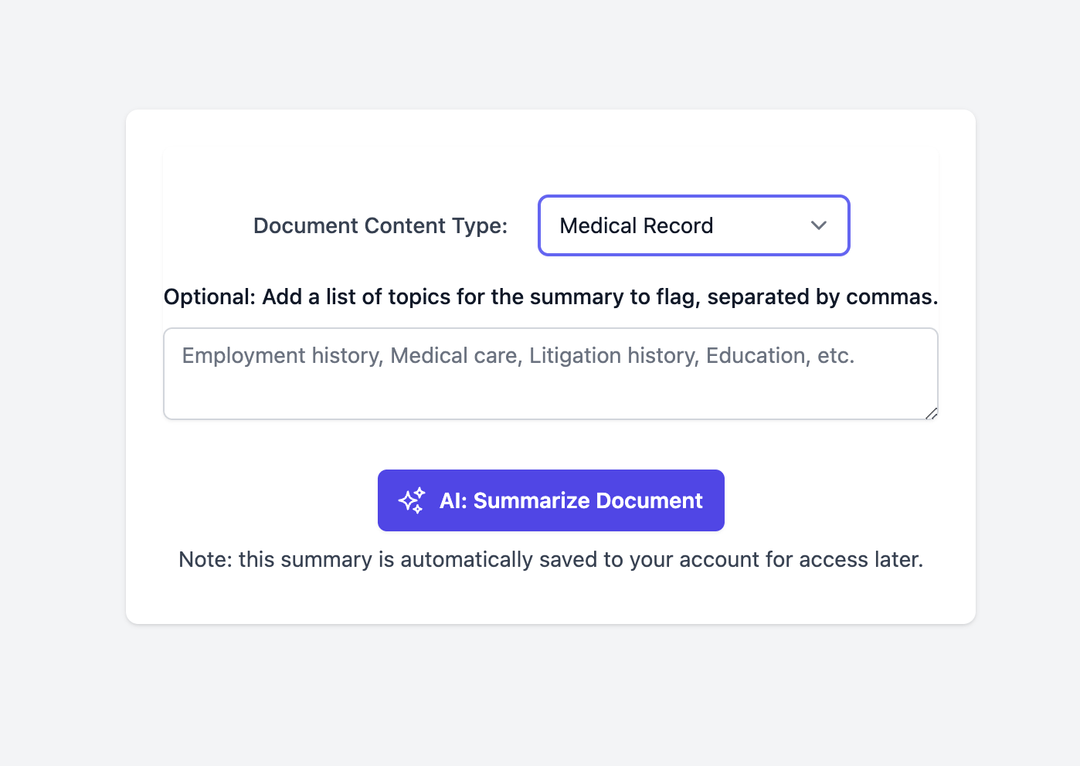
Where Dodon.ai Fits
Dodon.ai is built to align with HIPAA requirements and eliminate common risks in record review:
- Encrypted by default – All uploads, processing, and outputs are secured in transit and at rest.
- No unauthorized data sharing – Records are never used for public model training or shared across users.
- Audit-ready chronologies – Includes page-line citations and defensible export formats.
- Fast and consistent – Upload PDFs - including scans, handwriting, tables, and images - and receive structured chronologies in minutes.
- Flexible formats – Generate both table and narrative medical chronologies, depending on case needs.
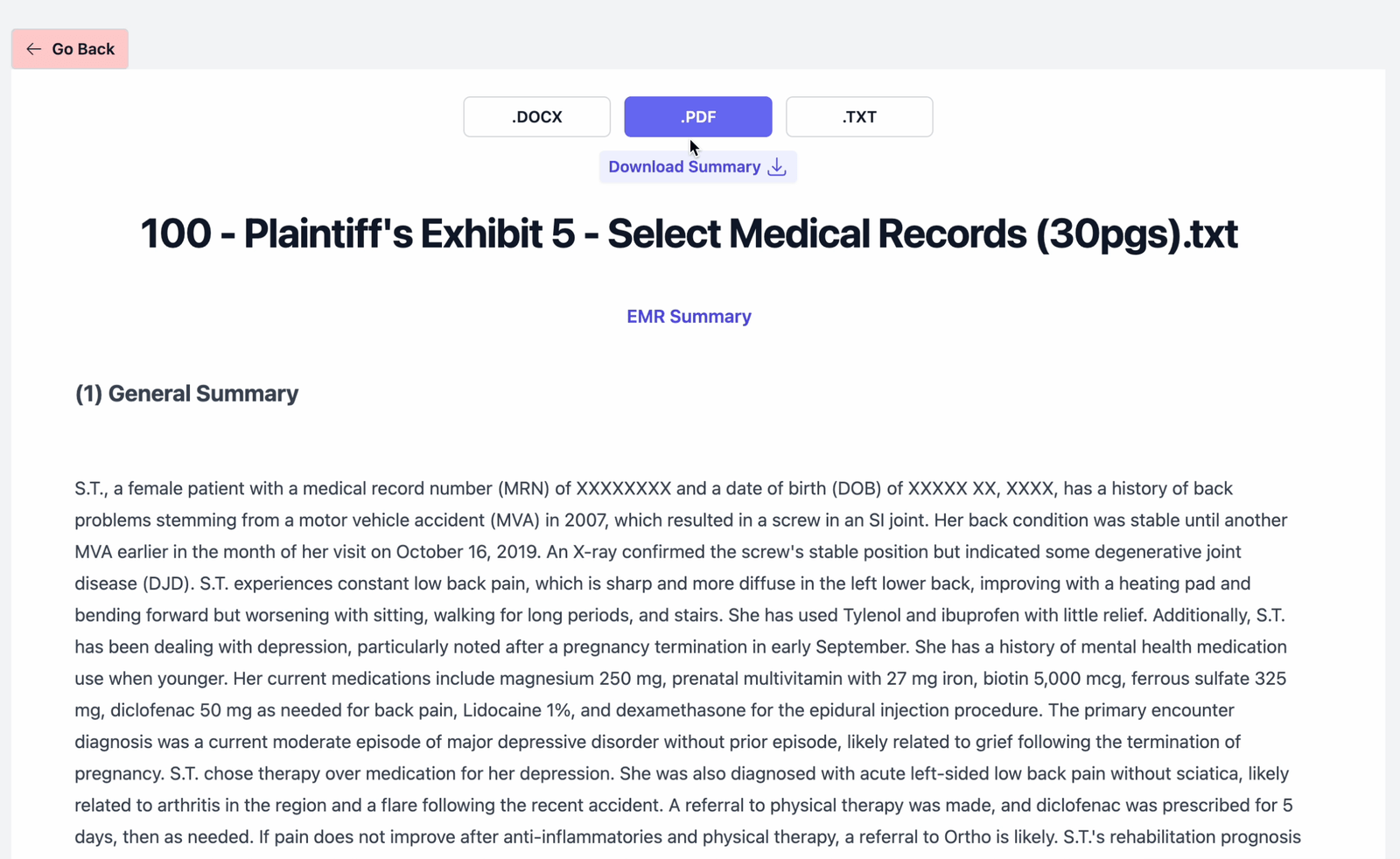
The Bottom Line
Most law firms are not directly bound by HIPAA because records typically flow through patient authorization. Business associates working with providers are, and firms obtaining records via subpoenas are not regulated as business associates, but are often expected or contractually required to uphold HIPAA-level safeguards. In every case, clients expect those protections.
Dodon.ai is built to align with HIPAA requirements by default, giving law firms, IME doctors, and litigation vendors the security protections they need, without slowing down preparation.
Try Dodon.ai free for 7 days and see how secure, audit-ready medical chronologies streamline your case prep → dodon.ai
Try Dodonai Free







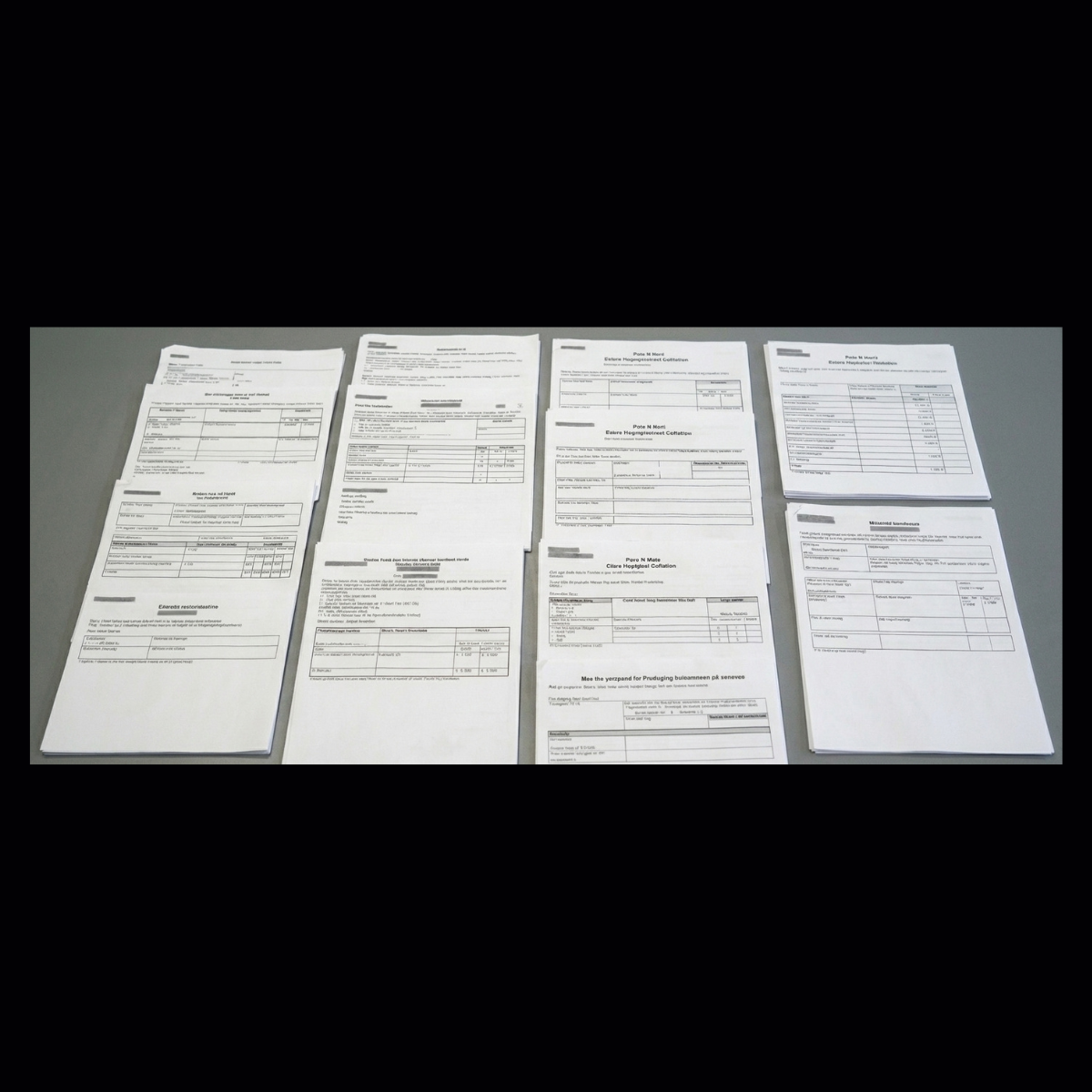
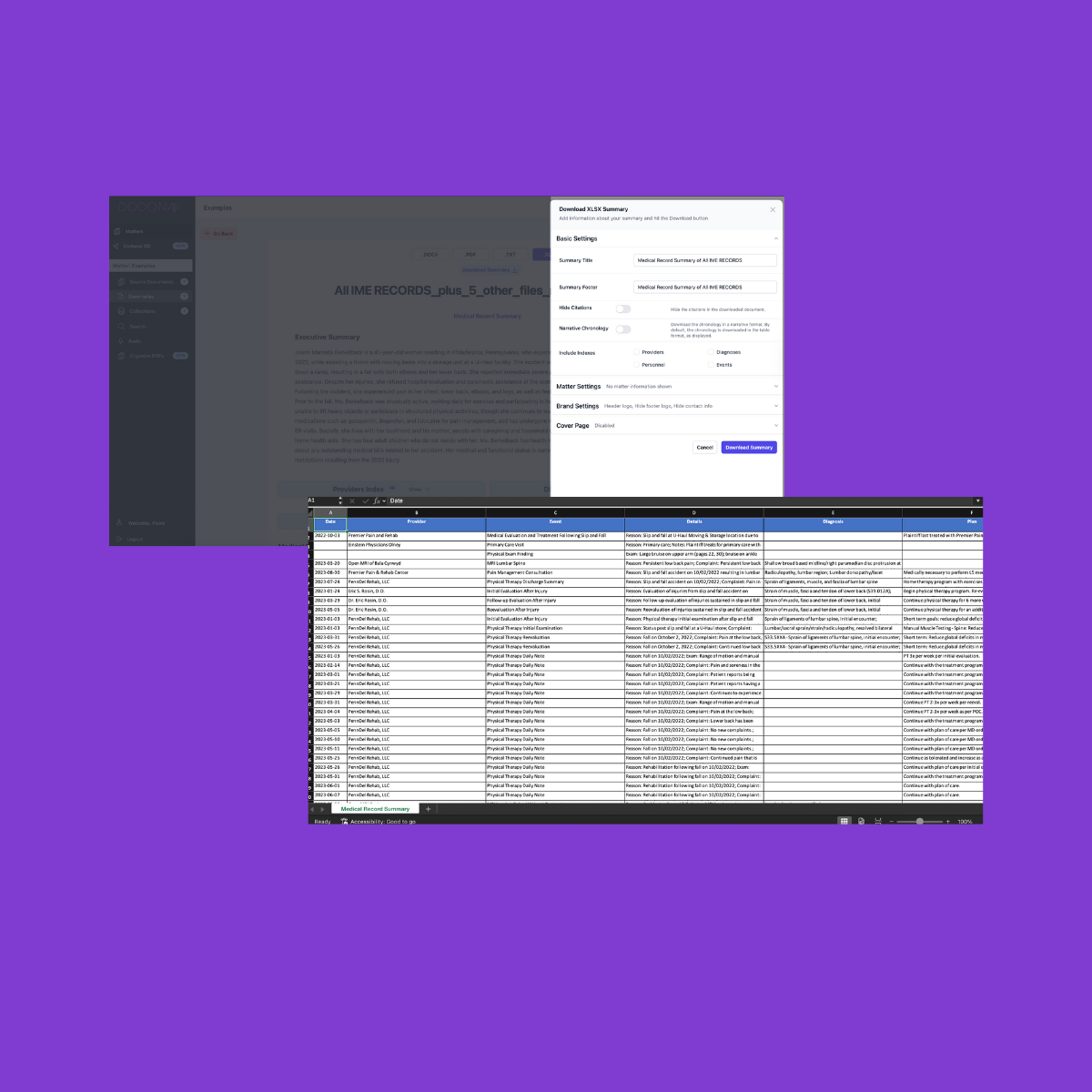
.png)

